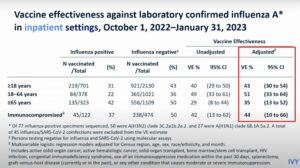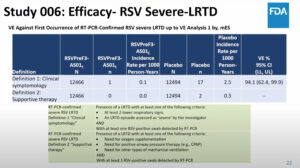NEW YORK (Reuters Health) – Patients on long-term stable warfarin therapy can safely be immunized against influenza, results of study from Italy indicate.
In the study, influenza vaccination had “no significant effect” on international normalized ratio (INR) values or warfarin sodium weekly doses, the study team reports in the April 12th issue of Archives of Internal Medicine. Therefore, close monitoring of international normalized ratio (INR) values is not needed after influenza vaccination in patients on stable long-term vitamin K antagonist regimens, they conclude.
In the double-blind crossover study, 104 patients on a stable warfarin regimen were randomly assigned to receive influenza vaccination (a commercially available trivalent adjuvanted vaccine) and subsequent placebo vaccination, or vice versa, with a 14-day washout period in between. The study team investigated the time course of INRs and warfarin weekly doses during the 28 days after influenza vaccination or placebo administration. In all patients, they recorded coagulation variables, clinical events and antibody response against vaccine components.
According to lead author Dr. Alfonso Iorio of the University of Perugia and colleagues, mean prothrombin times, expressed as the INR and warfarin weekly dose, were similar after vaccine and placebo.
The percentage of time in the therapeutic range was 70.7% following vaccination and 72.4% following placebo (p = 0.57), they report.
Also, they note, 97.4% of patients remained within 1 unit of the therapeutic range after vaccination, and 89.4% remained within 0.5 units. These rates were similar to those observed after placebo injections.
There were 11 minor mucocutaneous hemorrhagic events but no cases of fatal or major bleeding.




